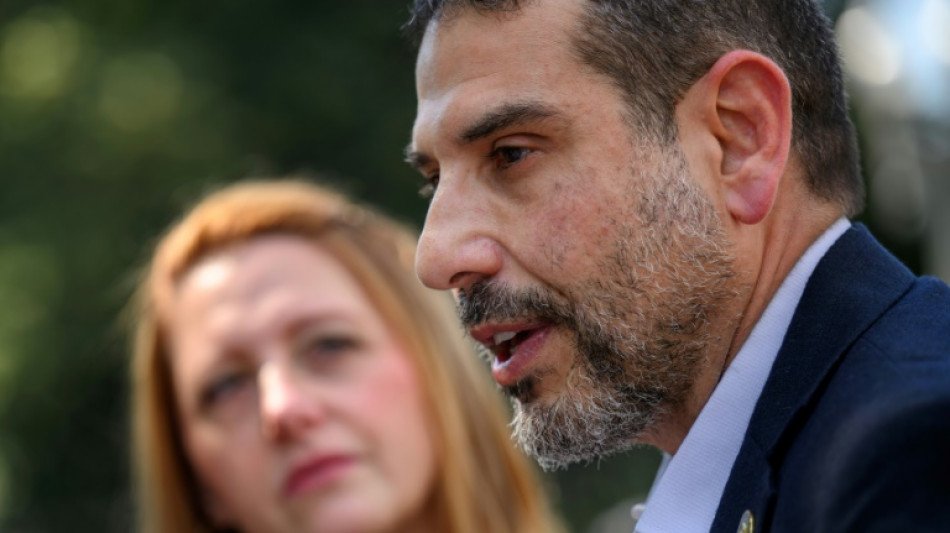
-
 'Personality' the key for Celtic boss Nancy when it comes to new signings
'Personality' the key for Celtic boss Nancy when it comes to new signings
-
Arteta eager to avoid repeat of Rice red card against Brighton

-
 Nigeria signals more strikes likely in 'joint' US operations
Nigeria signals more strikes likely in 'joint' US operations
-
Malaysia's former PM Najib convicted in 1MDB graft trial

-
 Elusive wild cat feared extinct rediscovered in Thailand
Elusive wild cat feared extinct rediscovered in Thailand
-
Japan govt approves record budget, including for defence

-
 Seoul to ease access to North Korean newspaper
Seoul to ease access to North Korean newspaper
-
History-maker Tongue wants more of the same from England attack

-
 Australia lead England by 46 after 20 wickets fall on crazy day at MCG
Australia lead England by 46 after 20 wickets fall on crazy day at MCG
-
Asia markets edge up as precious metals surge

-
 Twenty wickets fall on day one as Australia gain edge in 4th Ashes Test
Twenty wickets fall on day one as Australia gain edge in 4th Ashes Test
-
'No winner': Kosovo snap poll unlikely to end damaging deadlock

-
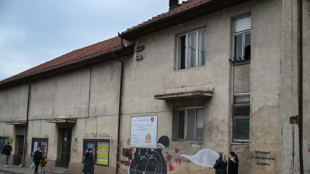 Culture being strangled by Kosovo's political crisis
Culture being strangled by Kosovo's political crisis
-
Main contenders in Kosovo's snap election
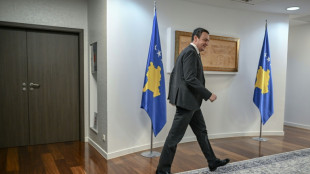
-
 Australia all out for 152 as England take charge of 4th Ashes Test
Australia all out for 152 as England take charge of 4th Ashes Test
-
Boys recount 'torment' at hands of armed rebels in DR Congo

-
 Inside Chernobyl, Ukraine scrambles to repair radiation shield
Inside Chernobyl, Ukraine scrambles to repair radiation shield
-
Bondi victims honoured as Sydney-Hobart race sets sail

-
 North Korea's Kim orders factories to make more missiles in 2026
North Korea's Kim orders factories to make more missiles in 2026
-
Palladino's Atalanta on the up as Serie A leaders Inter visit

-
 Hooked on the claw: how crane games conquered Japan's arcades
Hooked on the claw: how crane games conquered Japan's arcades
-
Shanghai's elderly waltz back to the past at lunchtime dance halls

-
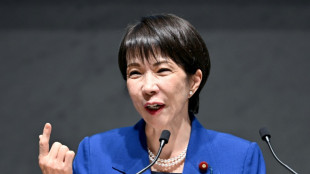 Japan govt approves record 122 trillion yen budget
Japan govt approves record 122 trillion yen budget
-
US launches Christmas Day strikes on IS targets in Nigeria

-
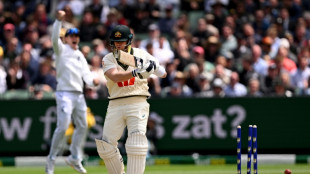 Australia reeling on 72-4 at lunch as England strike in 4th Ashes Test
Australia reeling on 72-4 at lunch as England strike in 4th Ashes Test
-
Too hot to handle? Searing heat looming over 2026 World Cup

-
 Packers clinch NFL playoff spot as Lions lose to Vikings
Packers clinch NFL playoff spot as Lions lose to Vikings
-
Guinea's presidential candidates hold final rallies before Sunday's vote
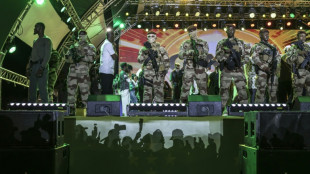
-
 Aptevo Therapeutics Announces 1-for-18 Reverse Stock Split
Aptevo Therapeutics Announces 1-for-18 Reverse Stock Split
-
Loar Holdings Inc. Announced The Completion of its Acquisition of LMB Fans & Motors

-
 IRS Can Freeze Installment Agreements After Missed Filings - Clear Start Tax Explains Why Compliance Comes First
IRS Can Freeze Installment Agreements After Missed Filings - Clear Start Tax Explains Why Compliance Comes First
-
How the Terms of SMX's $111 Million Capital Facility Shape the Valuation Discussion

-
 A Christmas Message to the DEA's Diversion Anti Marijuana Cabal
A Christmas Message to the DEA's Diversion Anti Marijuana Cabal
-
QAT Community Sets QuantumTrade 5.0 for Public Beta Testing in March 2026

-
 BondwithPet Expands B2B Offering with Custom Pet Memorial Product
BondwithPet Expands B2B Offering with Custom Pet Memorial Product
-
Best Crypto IRA Companies (Rankings Released)

-
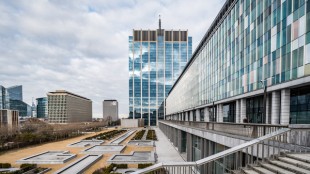 Eon Prime Intelligent Alliance Office Unveils New Brand Identity and Completes Website Upgrade
Eon Prime Intelligent Alliance Office Unveils New Brand Identity and Completes Website Upgrade
-
Villa face Chelsea test as Premier League title race heats up

-
 Spurs extend domination of NBA-best Thunder
Spurs extend domination of NBA-best Thunder
-
Malaysia's Najib to face verdict in mega 1MDB graft trial
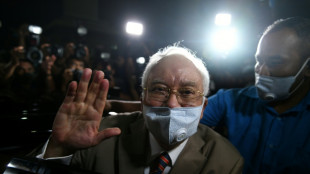
-
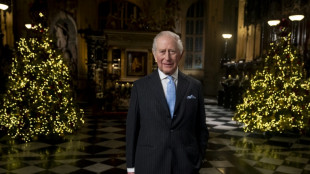 King Charles calls for 'reconciliation' in Christmas speech
King Charles calls for 'reconciliation' in Christmas speech
-
Brazil's jailed ex-president Bolsonaro undergoes 'successful' surgery

-
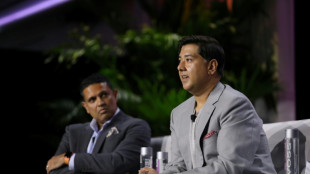 UK tech campaigner sues Trump administration over US sanctions
UK tech campaigner sues Trump administration over US sanctions
-
New Anglican leader says immigration debate dividing UK

-
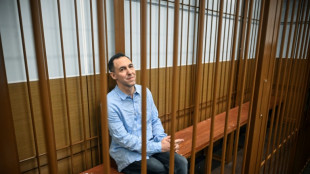 Russia says made 'proposal' to France over jailed researcher
Russia says made 'proposal' to France over jailed researcher
-
Bangladesh PM hopeful Rahman returns from exile ahead of polls

-
 Police suspect suicide bomber behind Nigeria's deadly mosque blast
Police suspect suicide bomber behind Nigeria's deadly mosque blast
-
AFCON organisers allowing fans in for free to fill empty stands: source
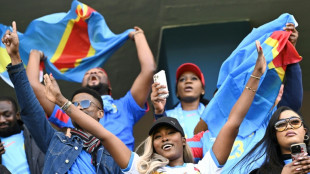
-
 Mali coach Saintfiet hits out at European clubs, FIFA over AFCON changes
Mali coach Saintfiet hits out at European clubs, FIFA over AFCON changes
-
Last Christians gather in ruins of Turkey's quake-hit Antakya
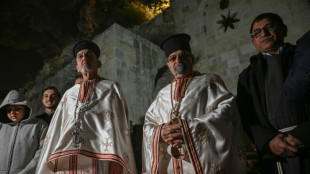

US health workers sound alarm on Gaza medical crisis
Patients in Gaza's few standing hospitals are dying in droves from infections resulting from a lack of protective gear and soap, even when they survive their horrific blast injuries.
And health workers are facing agonizing decisions, like giving up on a seven-year-old boy with extensive burns because bandages are in short supply and he'd have probably died anyway.
These are just some of the horrors witnessed by American doctors and nurses returning from the besieged Palestinian territory, who are now on a mission to spread the word about what they saw and apply pressure on Israel to allow in more life-saving supplies.
"Whether or not a ceasefire happens, we have to get humanitarian aid. And we have to get it in sufficient volumes to meet the demands," Adam Hamawy, a former US army combat surgeon, tells AFP in an interview after a medical mission to Gaza's European Hospital last month.
"You could give all you want, you can donate," says the reconstructive plastic surgeon from New Jersey. "But if these borders don't open up to allow that aid to get in, then it's just useless."
Hamawy has volunteered in war torn and natural disaster-hit countries for the past 30 years, from the siege of Sarajevo to the Haiti earthquake.
"But the level of civilian casualties that I experienced was beyond anything I'd seen before," says the 54-year-old, who helped save the life of Senator Tammy Duckworth when she lost both of her legs to a rocket-propelled grenade (RPG) attack on the helicopter she was flying in Iraq.
"Most of our patients were children under the age of 14," he stressed. "This has nothing to do with your political views."
- Rampant infections -
Hamawy and other medics told AFP they are convinced that for now their energy is better spent lobbying the halls of power to stop the war and require Israel to comply with international law by letting in more aid.
Israel denies allegations of international law violations during its invasion, launched in response to Hamas' attacks and hostage-taking on October 7.
On a hot June afternoon in the capital Washington, Monica Johnston, a 44-year-old ICU nurse from Portland, Oregon said she conveyed specific lists of what was needed in meetings she had held with White House officials and lawmakers on Capitol Hill.
Unlike Hamawy, her journey to Gaza was her very first medical mission.
"I don't watch the news, I don't take part in anything political," she said. But last fall, she received an email from the American Burn Association with an urgent call for help. "Anytime I hear the word 'help,' my ears perk up, my heart starts pumping, and I feel I need to do that."
A 19-member team organized by the Palestinian American Medical Association set off with packed suitcases, bidding farewell to their families.
On the ground, they faced daunting challenges: not enough health workers, as well as a severe scarcity of vital medicines and even basic hygiene supplies, which led to the rampant spread of infections.
Johnston's voice cracks with emotion as she recalls the decision to stop treating a seven-year-old boy's extensive burns, prioritizing resources for patients with a better chance of survival.
"Two days later, he started developing maggots in his wounds, and then the feeling of responsibility that I caused this," she says. He was buried in his bandages because his body was totally infested.
- Families wiped out -
Whole families often arrived together, explained Ammar Ghanem, a 54-year-old ICU doctor from Michigan. This stemmed from the common practice of extended relatives living in multistory buildings, making them more vulnerable to bombings.
A case in point was a cheerful 12-year-old boy who used to volunteer at the hospital, a source of inspiration for the medics. But for several days, he stopped coming.
When he finally returned, Ghanem learned tragic news: thirty members of the boy's extended family had been killed in a single bombing, and he himself had to help pull their bodies from the rubble.
Initially the team felt relatively safe, but that changed abruptly after the Rafah crossing was closed. This triggered deep anxiety in their Palestinian colleagues, who expressed a sense of deja vu from Israel's past incursion into northern Gaza and the multiple evacuations they'd been through.
Though they were penciled in for a two-week mission, they were left stranded for days until an intervention from the US embassy -- a harrowing time for their partners and children back home.
Now home, they grapple with survivor's guilt, thinking of patients and colleagues left back in Gaza. They also feel grateful for small things, from clean surgical gloves to filling meals.
"What makes me feel better is feeling that I'm making a difference by relaying this message and telling people what I witnessed -- I think that's as important as what we did over there," says Hamawy.
D.Sawyer--AMWN


